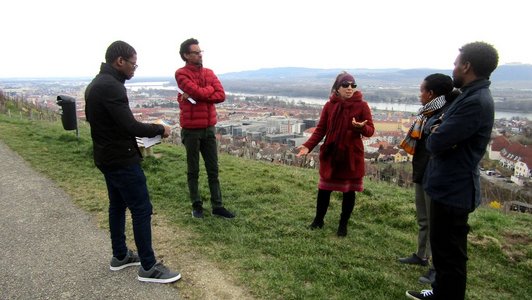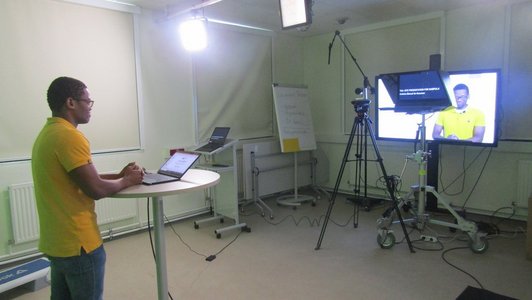

GIRT started in May 2022, when the further evolution of the Covid-19 pandemic was still unclear, and some travel restrictions were still in place. Additionally, the civil war in Ethiopia’s Norther Tigray region was raging and consequently, prospects on travelling and meetings in person remained bleak at the onset of project activities. The GIRT team members therefore made do with virtual meetings to get to know each other. Fortunately, with all partner coordinators knowing each other from previous joint research activities, this was feasible with remarkable ease.
The project kicked off with a virtual meeting of (nearly) all project team members held on June 13, 2022: all team members participated online and were introduced to the project goals and overall design. First exchange over challenges and specific local situation regarding informal housing took place between the teams of partner institutions.
The teams then set out to select informal settlements in all their respective partner regions. For this purpose, they jointly developed a list of criteria to identify settlements with previous engagement of their institutions as to enable potential long-term science-society cooperation. The settlements selected comprise of both older, inner-city locations as well as peripheral, peri-urban districts on city fringes. They thus represent a wide variety of different housing situations with broad similarities as well as stark differences.
Site selection was followed by four virtual Short Courses (SC) on Qualitative Interviewing in which project team members discussed the methodology of qualitative interviews to be conducted in the selected settlements. Some days in advance of each SC, pre-readings (a compilation of factual book excerpts, scientific journal articles) were made available for all participants. In the morning of the SC, team members of each university met physically to discuss the pre-readings. In the afternoon of the SC, teams from all project regions met virtually to discuss questions of concern in all regions with regards to doing qualitative interviewing in the selected informal settlements.
Following the same pattern, six virtual Short Courses (SC) on Transdisciplinary (Td) research were conducted to start figuring out what a transdisciplinary research process could look like under the specific societal framework conditions of informal housing in Ethiopia and Mozambique. These SCs had been preceded by a coordinators’ meeting in Krems, Austria, in March 2023, during which intense deliberations on preparing the local Td processes had taken place. Additionally, the meeting included project activities such as consultation with Td experts at UWK and advisory board members, exchange with students and recording of videos for the GIRT website etc.
Much to the joy of the entire team, faculty of University of Mekelle in Ethiopia’s war-torn Tigray region, were finally able to re-join the project after a long and total outage of any means of communication until November 2022. With this renewed hope for cooperation spirits are high in the project team on entering into its second year.
Materials used during the short course, as well as presentations of the selected sites and a Td needs assessment report are available online.
Project website of Strengthening Research and Educational Competences of HEIs for Gender sensitive Urban (InfoRmal Settlement) Transformation | GIRT




